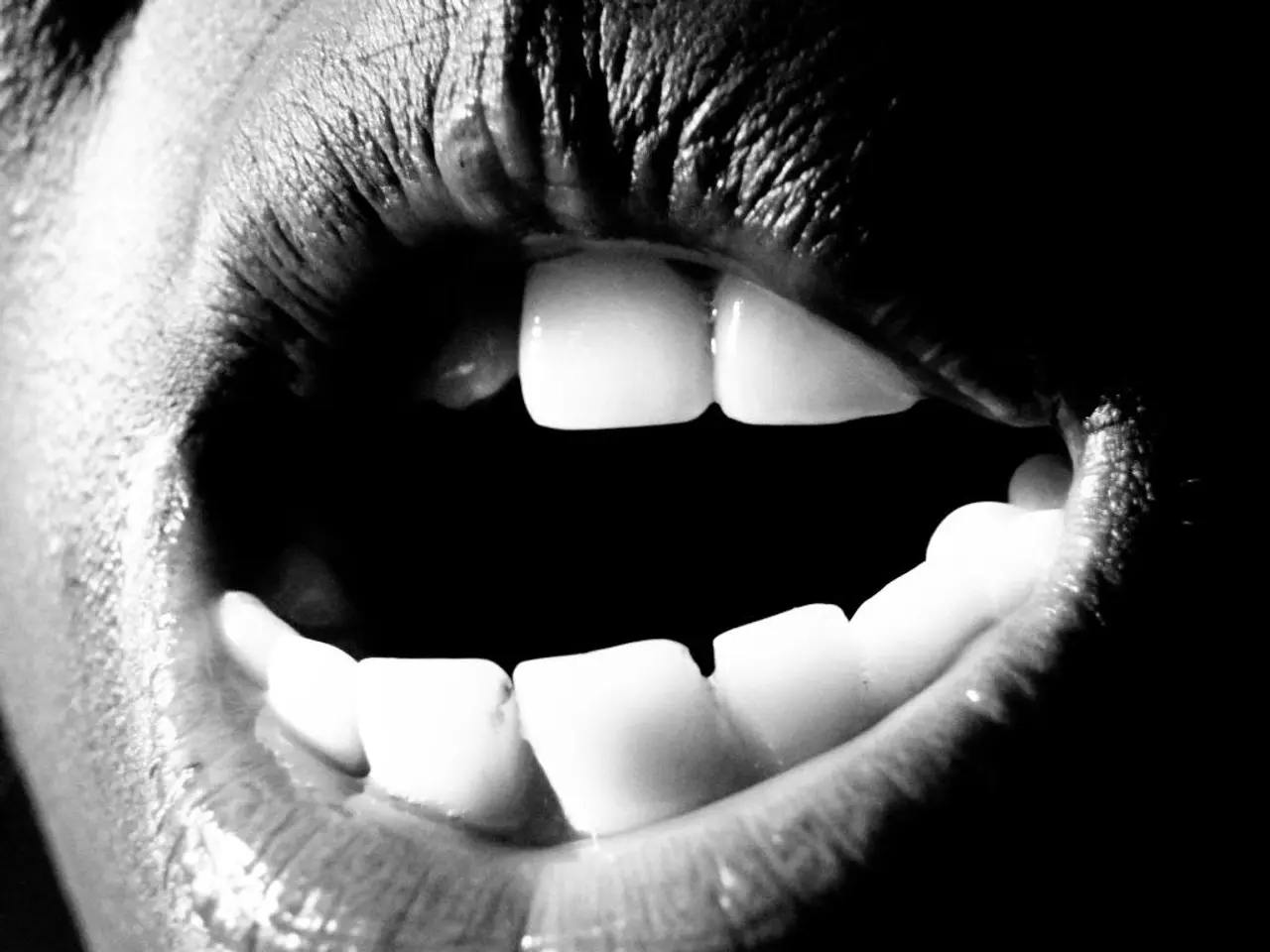Mouth Nibbling: Reasons, Consequences, and Prevention Strategies
Chronic cheek biting, a body-focused repetitive behavior (BFRB), is a condition that has been linked to psychological factors such as anxiety, stress, emotional dysregulation, and obsessive-compulsive disorder (OCD) [1][2][3]. This behavior often serves as a coping mechanism to manage uncomfortable emotions or states such as boredom, overwhelm, or anxiety, providing temporary sensory relief but potentially causing physical harm and distress over time [1][2][3].
### Psychological Causes
The root causes of chronic cheek biting are multifaceted. Anxiety and stress are common triggers, offering a brief distraction or sensory grounding from emotional discomfort [1][4]. People with difficulties managing intense emotions—such as those with ADHD or OCD—may engage in cheek biting to relieve emotional overload or tension [2]. Repetitive behaviors are reinforced by neural reward pathways, making them habitual and difficult to stop through willpower alone [1]. Cheek biting can also be part of OCD spectrum behaviors, where compulsions serve to alleviate obsessive thoughts or anxiety [2][3].
### Treatments
Effective management of chronic cheek biting typically involves addressing both the psychological triggers and the behavior itself. Cognitive Behavioral Therapy (CBT), specifically habit reversal training, helps increase awareness of the behavior's triggers and develops competing responses to reduce its frequency [1]. Awareness training involves learning to recognize moments of cheek biting and consciously delaying or substituting the action with less harmful alternatives, such as chewing gum or fidget tools [1]. Therapy focusing on emotional regulation (like dialectical behavior therapy (DBT)) can help manage underlying anxiety, stress, or ADHD-related impulsivity [2]. Environmental modifications, such as using physical substitutes like chewing gum or stress-relief objects, can help reduce the urge to bite the cheek [1]. Some individuals find hypnotherapy helpful for interrupting unconscious chewing habits linked to anxiety or overwhelm [5].
Consistent effort and sometimes professional support are necessary for successful treatment, rather than abrupt cessation attempts [1]. In cases of chronic cheek biting, a dentist may prescribe a mouthguard to prevent further damage to the tissue and give it a chance to heal [6]. A therapist will aim to treat both the chronic cheek biting and the underlying cause of the behavior.
The prevalence of cheek and lip biting in children between the ages of 2 and 17 years in the United States was slightly higher in an older survey from 2005 [7]. Other body-focused repetitive disorders include hair pulling, nail biting, and lip biting. When someone repeatedly bites their cheek, the area can become thick, scarred, and paler than the surrounding tissue [8].
In conclusion, chronic cheek biting associated with OCD and other emotional disorders is driven by complex psychological factors related to anxiety, emotional dysregulation, and habitual neural patterns. Treatment integrates behavioral interventions like CBT with emotional support and often environmental changes to reduce the behavior’s frequency and physical consequences [1][2][5]. The loved ones of a person with body-focused repetitive behaviors can maintain a supportive relationship and encourage them to seek help from a doctor or therapist if they have concerns.
- The underlying causes of chronic cheek biting are often linked to psychological factors like anxiety, stress, and emotional dysregulation, which serve as common triggers [1][4].
- People with conditions such as ADHD or OCD may resort to cheek biting as a means to manage intense emotions or reduce emotional overload [2].
- Cheek biting can be part of a broader spectrum of obsessive-compulsive behaviors (OCD) where compulsions aim to alleviate obsessive thoughts or anxiety [2][3].
- Neural reward pathways reinforce repetitive behaviors like cheek biting, making them habitual and hard to stop through willpower alone [1].
- A therapist may employ cognitive behavioral therapy (CBT) with habit reversal training to increase awareness of the behavior's triggers and develop competing responses [1].
- Awareness training and technique involves learning to recognize moments of cheek biting and consciously delaying or substituting the action with less harmful alternatives [1].
- Dialectical behavior therapy (DBT) can be useful in managing underlying anxiety, stress, or ADHD-related impulsivity [2].
- In extreme cases, a dentist may prescribe a mouthguard to prevent further damage to the affected tissue and facilitate healing [6].
- Chronic cheek biting can cause the bitten area to thicken, scar, and become paler than the surrounding tissue [8].
- Support from loved ones and professional intervention can be crucial in addressing body-focused repetitive behaviors like chronic cheek biting and its underlying psychological causes [1][5].




